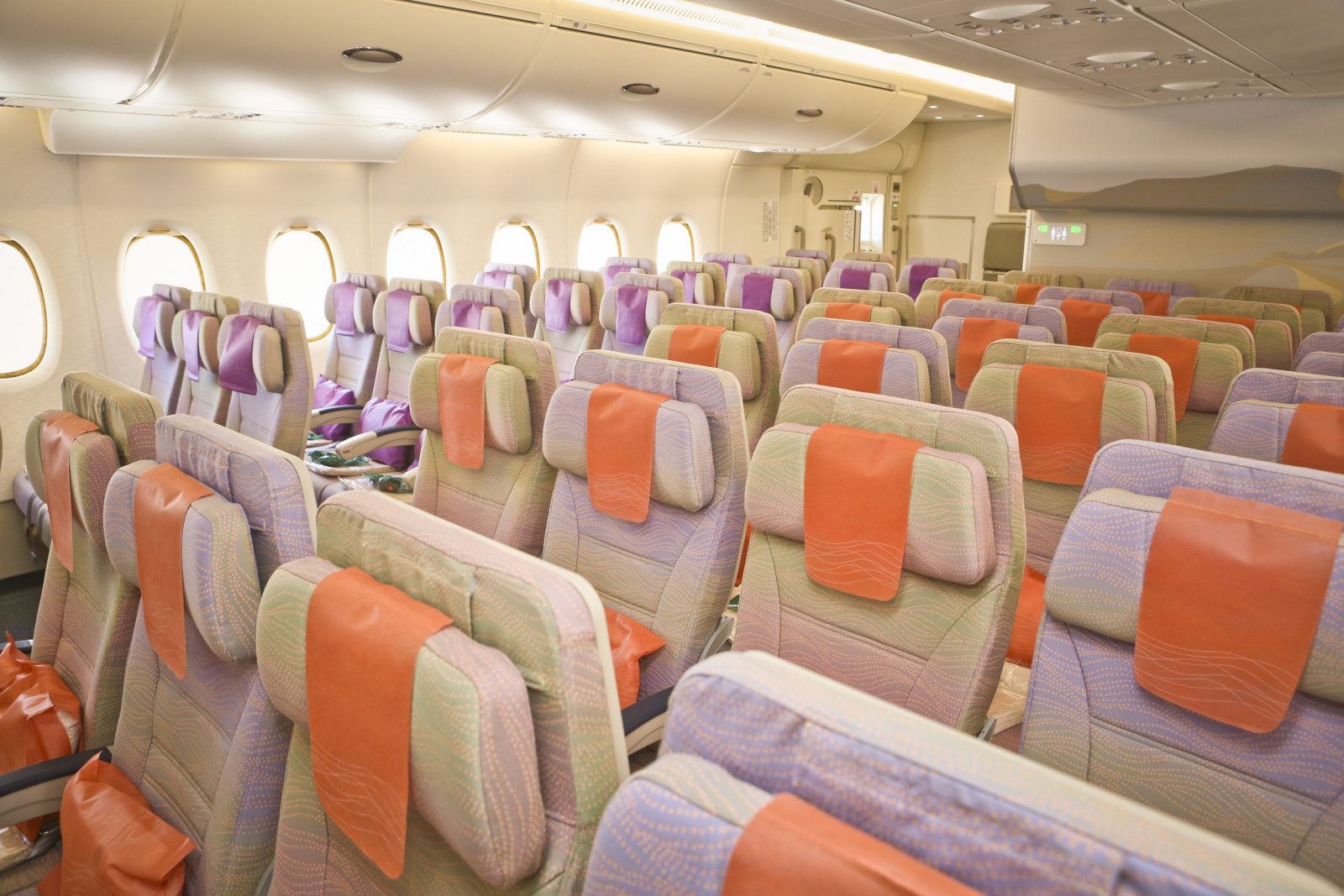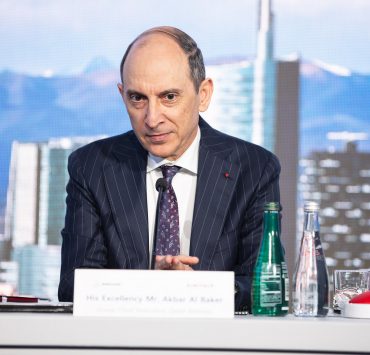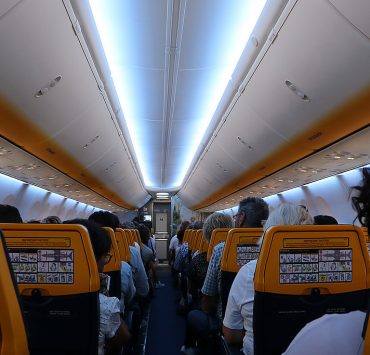
On the sidelines of IATA’s annual general meeting which is being held in Sydney, Australia this week, Emirates’ president, Sir Tim Clark has shared some interesting insights into how business is going for the airline at the moment. The 69-year old, who’s been with the airline since it was founded in 1985 and has been instrumental in creating the Emirates brand, spoke frankly for around 10-minutes with a journalist from Bloomberg.
Sir Tim spoke about some of the biggest challenges facing the aviation industry at the moment, including rising oil prices, as well as global political uncertainty. He also answered some other burning questions that have been raised about Emirates of late – including a rumoured pilot shortage and the possibility of Emirates merging with rival Etihad Airways in neighbouring Abu Dhabi.
These kind of ad-lib interviews are always a good place to look for nuggets of information which would never make it into a scripted press release. And this interview was no exception – Sir Tim is a highly experienced, intellectual businessman but even he can make mistakes from time to time.
Here’s how he answered some of the questions he was asked:
The Pilot Shortage
In April, Sir Tim said Emirates was “slightly” short of pilots – specifically, the airline needed between 100-150 pilots to meet demand. Then came news that Emirates planned to ground up to 46 planes over the summer months – in part because the airline didn’t have enough crew to operate them.
In response, Clark said the pilot shortage had been: “Slightly overcooked.”
He went onto explain:
“This was an internal issue for us. We kind of mismanaged – well, we didn’t mismanage – we just, errr, there was a slight out of step assessment of what the pilot establishment would be.”
Clark continued:
“We’ve sorted that out, we’re pulling in 40-50 pilots a month now. We have no problems with recruiting pilots.”
There had been rumours that pilots were leaving Emirates in droves for better-paid jobs in China and other concerns were raised about the level of experience amongst Emirates’ existing flight crew community. Other rumours from internal sources suggest the airline is operating some flights with fewer pilots than would normally be expected.

Sir Tim tours a new-look interior of a Boeing 777-200. Photo Credit: Emirates
The Grounded Planes
Sir Tim didn’t confirm how many planes will be grounded over the summer months but he did seem to suggest the decision to do so had been in response to both the pilot shortage and waning demand during Ramadan.
Clark told Bloomberg:
“They start moving again in about a weeks time.”
“So during the course of the summer they’re all taking up. And by September/ October, we have 267 aircraft that will all be flying by then.”
The timescale for getting the entire fleet back up and running would tie in with Sir Tim’s previous estimates for recruiting enough pilots in order to make up for the shortfall in crew numbers.
A Merger With Etihad
On the back of Etihad Airways making a huge loss in 2016 – and the likelihood of last year’s results being just as bad – there have been continuing rumours that Etihad might want to join forces with Emirates in what would be a mega-merger between the two airlines.
Both airlines have rejected those rumours although the carriers are “cooperating” in other areas. Here’s what Clark now has to say on the possibility of a merger:
“On the short term/medium term horizon, I would say no”
“We are working with Etihad to try and look at areas of common ground without mixing up the brands and entering into areas that we are competing.”
“But there are a lot of things going on behind the scenes which will allow us to things better. And I think they recognise that working with us is a good idea. And us with them.”
Emirates ‘Lite’ and Premium Economy
We already know that Emirates plans to launch its first Premium Economy cabin in 2020 – becoming the first Middle East airline to do so. The seats will come fitted on the next wave of Airbus A380’s due to be delivered to the airline and will likely be retrofitted to other plane’s in due course.
We’ve also heard of Sir Tim’s plans to ‘unbundle’ fares – perhaps even creating a separate economy cabin which offers fewer amenities than what passengers previously enjoy. Here was his update:
“We will be doing a bit of that (unbundling fares)”
“We recognise that there are people who want a much cheaper fare. We will be looking at de-bundling, unbundling to give people perhaps a hand baggage only fare – because they don’t want anything else.”
Explaining his rationale, Clarke commented:
“Unbundling, restructuring, reclustering, and pricing are what people actually want – not what we tell them they’re going to do.”
As for how long all this would take, Sir Tim said:
“Premium economy in the next two years and the possibility of a new category of economy within about the same timescale”
The Outlook
“For Emirates, we’re very strong. Our forward bookings are strong. We’re looking forward to a very robust summer, notwithstanding the fact that we’ve had to increase the fares. It seems the demand is strong even with the fares higher than they were six months ago. We remain very optimistic about that.”
Sir Tim also seemed optimistic about the threat of low-cost long-haul airlines, saying he didn’t expect airlines like Norwegian to “cannibalise existing markets” but it would simply mean “more people are travelling.”
Oil Prices
One area of caution, however, was the rise in oil prices. While this is good for bolstering Emirates’ bookings for premium passengers who work in the oil and gas sector, it’s not so good when fuel remains the single highest cost for the airline – currently at 27%.
Sir Tim believes the airline will perform very well with oil prices around the $50-$60 per barrel range, saying he is looking for “equilibrium.”
Nonetheless, Clark says Emirates won’t be about to start fuel hedging. Saying there is “too much evidence in the past of airlines that have hedged and have come unstuck.”
Mateusz Maszczynski honed his skills as an international flight attendant at the most prominent airline in the Middle East and has been flying throughout the COVID-19 pandemic for a well-known European airline. Matt is passionate about the aviation industry and has become an expert in passenger experience and human-centric stories. Always keeping an ear close to the ground, Matt's industry insights, analysis and news coverage is frequently relied upon by some of the biggest names in journalism.









